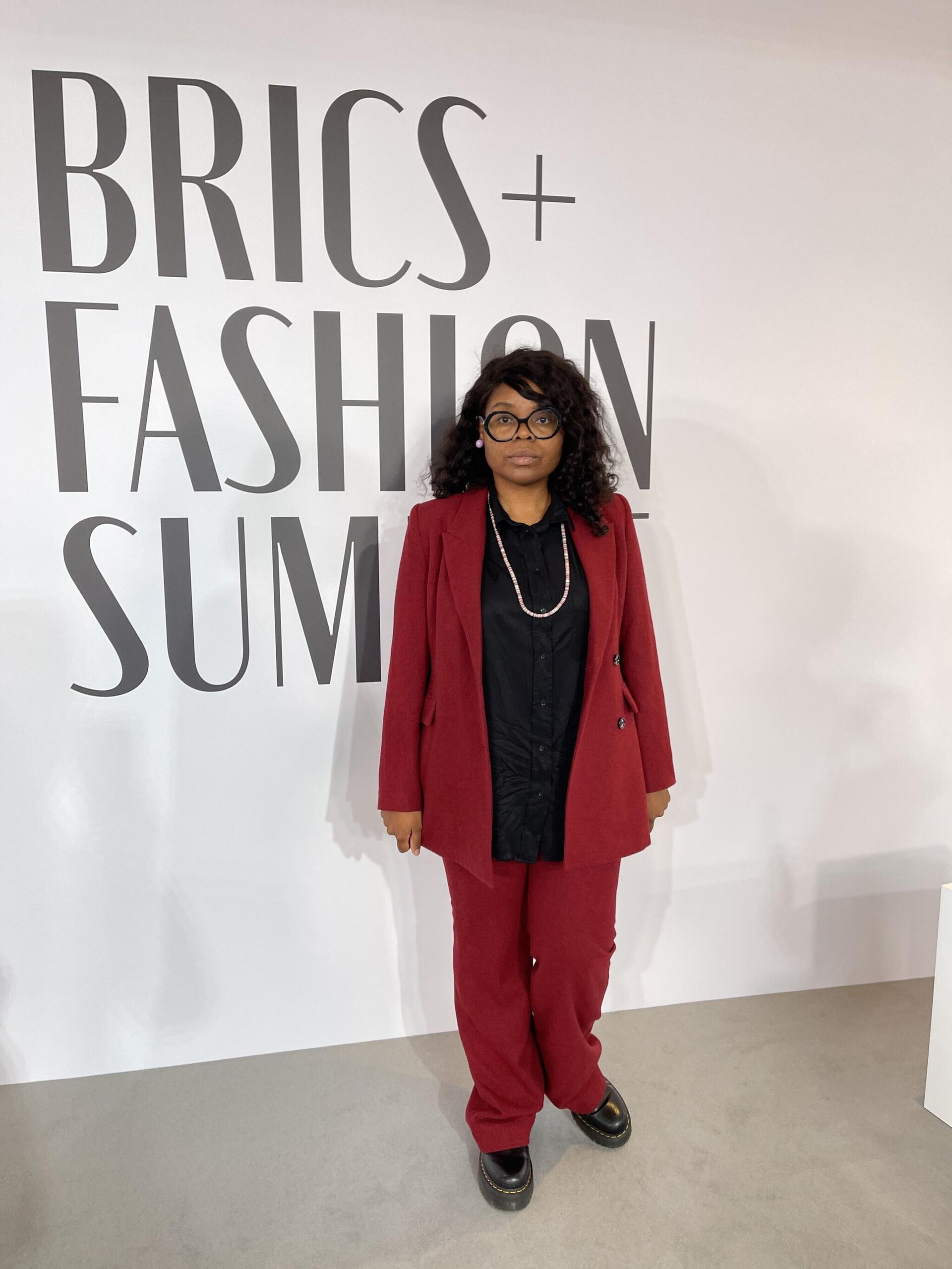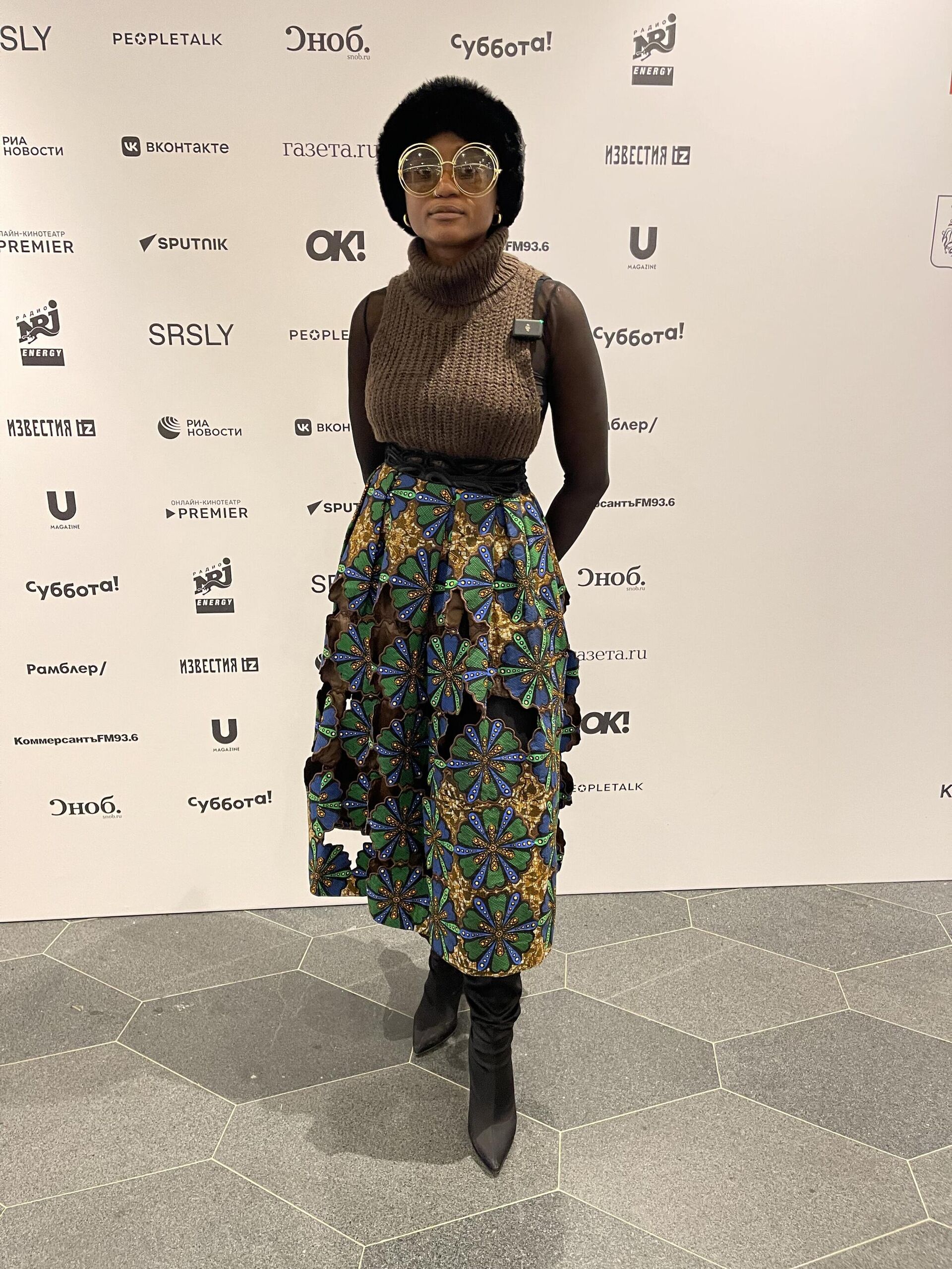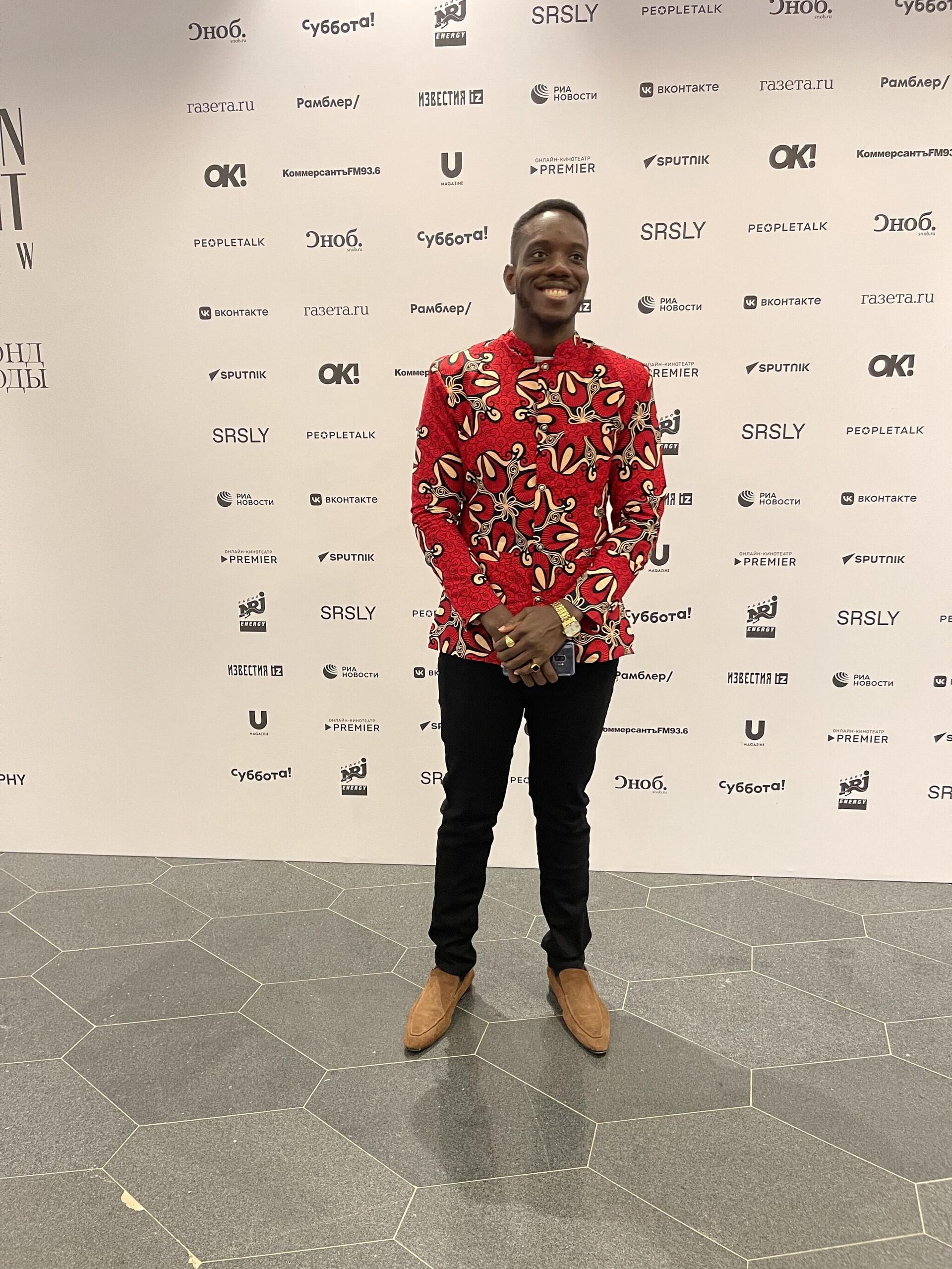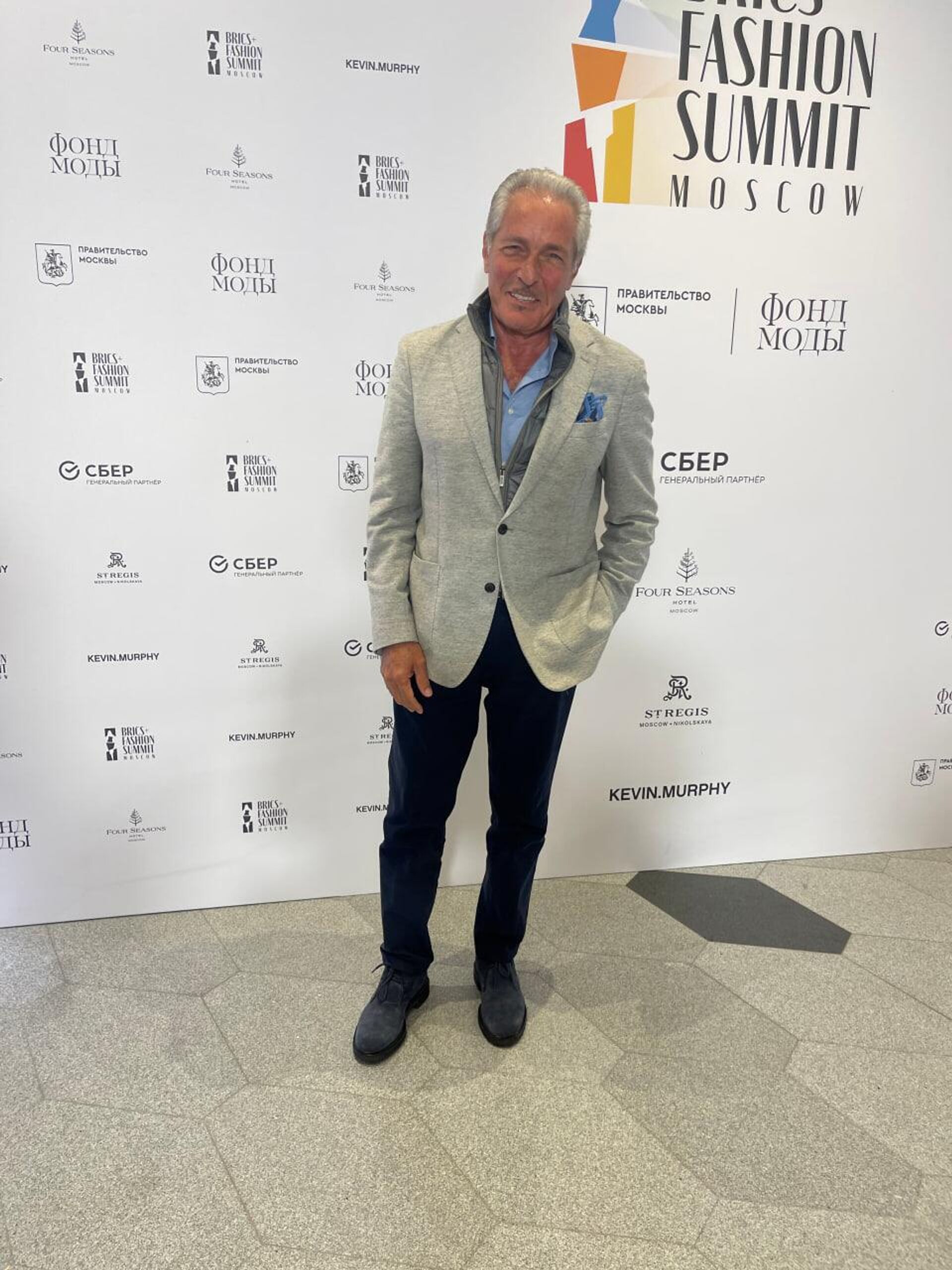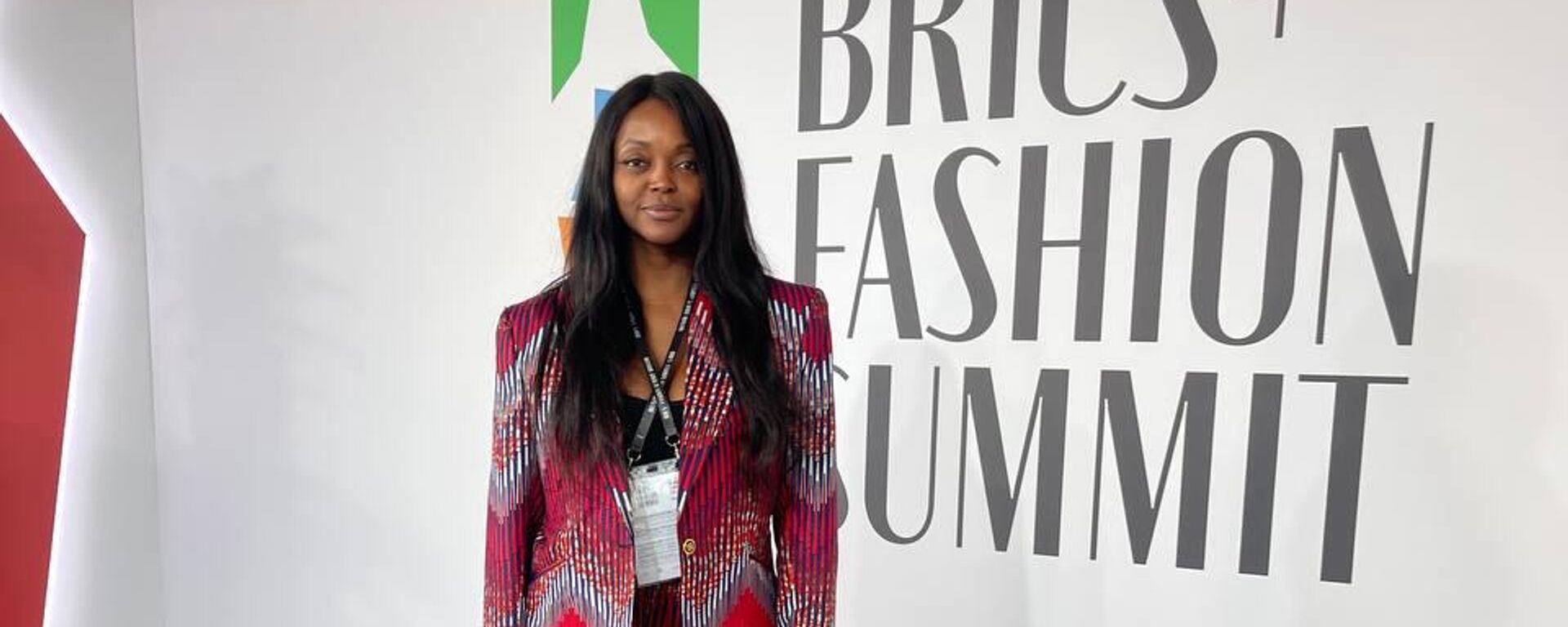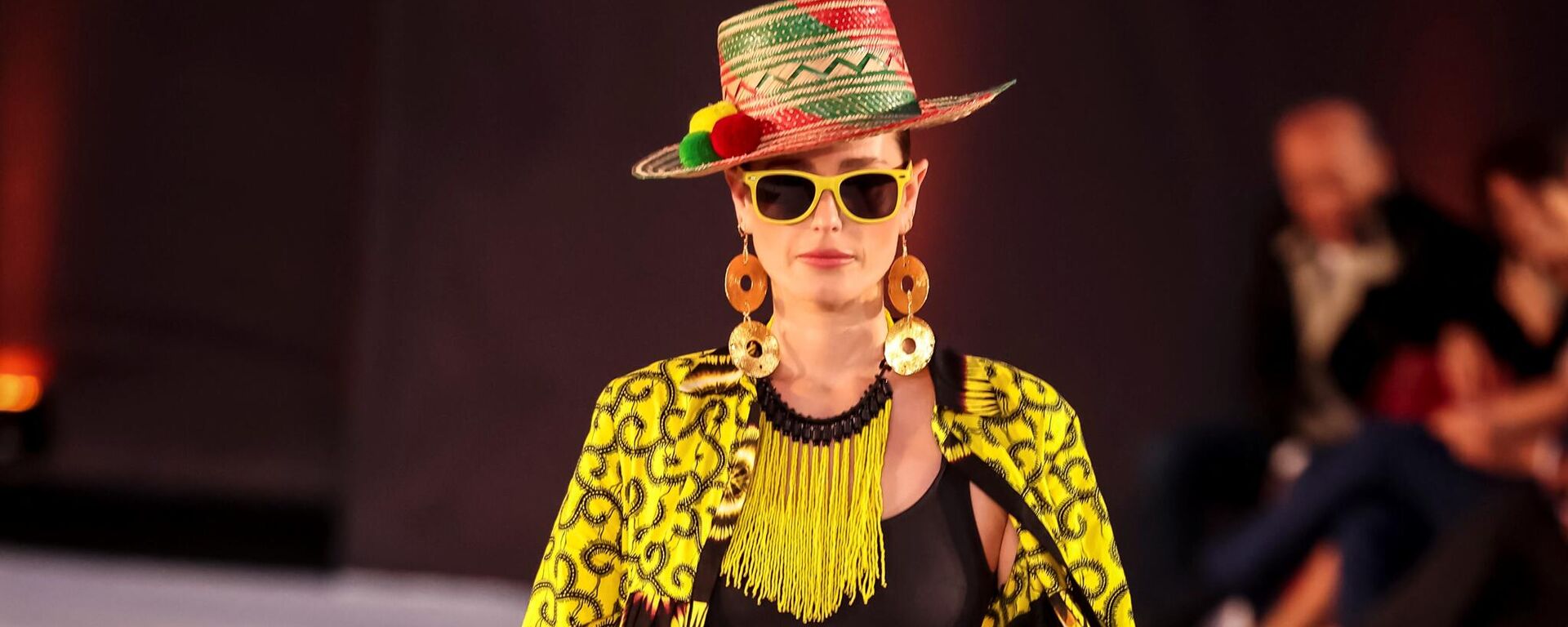https://en.sputniknews.africa/20231205/brics-fashion-summit-comes-to-an-end-how-african-participants-viewed-the-event-1063911335.html
BRICS+ Fashion Summit Comes to an End: How African Participants Viewed the Event
BRICS+ Fashion Summit Comes to an End: How African Participants Viewed the Event
Sputnik Africa
The BRICS+ Fashion Summit took place from November 28 to December 2, in the Russian capital of Moscow. The event was attended by designers, entrepreneurs and... 05.12.2023, Sputnik Africa
2023-12-05T18:11+0100
2023-12-05T18:11+0100
2023-12-05T18:35+0100
opinion
africa in details
russia
nigeria
brics
fashion
lifestyle
west africa
ghana
south africa
https://cdn1.img.sputniknews.africa/img/07e7/0c/02/1063912791_0:120:1280:840_1920x0_80_0_0_c02676417e3ca32ebc0928f90354bc5e.jpg
The BRICS+ Fashion Summit, which hosted over 60 delegations from Africa, the Middle East, Southeast Asia, and Latin America, concluded on Saturday in Moscow.After the massive event, Sputnik Africa caught up with some of the African attendees to share their impressions of the summit and reflect on fashion trends on the continent.David Tlale, South AfricaBRICS+ Fashion Summit is a pioneering and powerful platform to connect the textile industries of countries, David Tlale, South African Fashion Designer, told Sputnik Africa.He noted that building bridges, which is what the summit is doing today, helps African fashion brands to be recognized in the world.He emphasized that fashion unites people and countries "under one roof" because all people need clothes, the designer expressed the opinion that fashion is also "one of the most powerful media to advocate for any culture, any tradition, any heritage."In this regard, he mentioned the role of Africa in fashion, noting that it is one of the continents that is a source of inspiration and a center of diverse traditions.Michelle Francine Ngonmo, CameroonHolding the BRICS+ Fashion Summit is a great idea, Michelle Francine Ngonmo, CEO and Founder of Afro Fashion Association and the Black Carpets Award, said, reasoning that "meeting and talking about these thematics in the fashion industry is super needed by all the professionals around."She noted that "multipolarity is called again in the fashion world," and thus reflects multiculturalism.Discussing Africa's role in the fashion industry, she noted that while the continent used to be used as a "mood board" for inspiration, Africa is "a little bit starting to wake up" and embrace its heritage.However, the West still dictates the rules of fashion, the CEO noted.Chidera Muoka, NigeriaAlthough Western fashion standards still dominate the markets, people are increasingly getting excited about more niche designs, Chidera Muoka, Editor-In-Chief at Marie Claire, Nigeria, told Sputnik Africa.These niche designs people want to wear come from designers from Asia and Africa, thus generating more diversity in designs, she explained.She also shared a prediction that there will be a balance in the industry between the dominance of Western, African and Asian fashion.To make African brands more competitive, we need the infrastructure that supports the fashion industry, the editor-in-chief stressed. As an example, she cited the BRICS Summit and the involvement of much of the Russian government in fashion discussions.Nana Addo Tamakloe, GhanaAfrica's role in the fashion world is similar to that of other countries, with the difference that Africa's creative potential is still untapped, Nana Addo Tamakloe, Founder and CEO of Accra Fashion Week and the owner of the media house Fashionghana.com, told Sputnik Africa.Citing the abundance of Western, Chinese and Russian culture in movies, he noted that African fashion has not yet attracted the same attention. However, the CEO is convinced that this trend is good because it can take off at the right time.Commenting on ways to raise awareness of African brands, he said that more experts and marketing are needed because "the trade of fashion is more than just being creative and designing, and you need to understand that it's a business."He also pointed out that fashion has become more widespread due to the emergence of social media and online shopping, emphasizing that there was no multipolarity before because "people have not really had much option except for what has been in the mainstream magazines and in the stores."BRICS, a bloc made up of Brazil, Russia, India, China and South Africa, holds nearly one-third of the world's GDP and about 40% of the world's population.Paul Antaki, EgyptCooperation among the BRICS countries in the field of fashion promotes diversity in the industry, according to Paul Antaki, Chairman of the Board at Egyptian Fashion and Design Council, as he shared with Sputnik Africa.Regarding the BRICS-associated multipolarity, Antaki noted that it is not yet reflected in the fashion industry. He added that both BRICS+ and world markets together should facilitate product circulation.Discussing Africa's role in the fashion world, he highlighted that mixing the continent's culture with the international trends could fuel creativity.Commenting on ways to enhance the competitiveness of local African fashion brands, Antaki explained that it is important to address different aspects, including price, quality, and design. According to him, African brands could become more competitive via cooperation and reaching the target audience.The chairman emphasized the importance of creating demand for African fashion products through communication, especially on social networks.Regarding Russia-Africa fashion collaboration, the head of the council pointed out that despite the current lack of contacts in this field, real exchange and exchange of culture and knowledge could be developed in the future.
https://en.sputniknews.africa/20231129/no-need-to-reinvent-wheel-in-fashion-brics-states-can-learn-from-each-other-businesslady-says-1063849017.html
https://en.sputniknews.africa/20230531/1059612339.html
russia
nigeria
west africa
ghana
south africa
southern africa
cameroon
Sputnik Africa
feedback@sputniknews.com
+74956456601
MIA „Rossiya Segodnya“
2023
Maxim Grishenkin
https://cdn1.img.sputniknews.africa/img/07e7/0a/17/1063018107_0:0:1104:1103_100x100_80_0_0_03090c85a11f5d2e8a19cf1d989443c9.jpg
Maxim Grishenkin
https://cdn1.img.sputniknews.africa/img/07e7/0a/17/1063018107_0:0:1104:1103_100x100_80_0_0_03090c85a11f5d2e8a19cf1d989443c9.jpg
News
en_EN
Sputnik Africa
feedback@sputniknews.com
+74956456601
MIA „Rossiya Segodnya“
Sputnik Africa
feedback@sputniknews.com
+74956456601
MIA „Rossiya Segodnya“
Maxim Grishenkin
https://cdn1.img.sputniknews.africa/img/07e7/0a/17/1063018107_0:0:1104:1103_100x100_80_0_0_03090c85a11f5d2e8a19cf1d989443c9.jpg
africa in details, russia, nigeria, brics, fashion, lifestyle, west africa, ghana, south africa, southern africa, cameroon
africa in details, russia, nigeria, brics, fashion, lifestyle, west africa, ghana, south africa, southern africa, cameroon
BRICS+ Fashion Summit Comes to an End: How African Participants Viewed the Event
18:11 05.12.2023 (Updated: 18:35 05.12.2023) Longread
The BRICS+ Fashion Summit took place from November 28 to December 2, in the Russian capital of Moscow. The event was attended by designers, entrepreneurs and fashion industry professionals, who were able to witness fashion shows and some of them presented their collections.
The BRICS+ Fashion Summit, which hosted over 60 delegations from Africa, the Middle East, Southeast Asia, and Latin America, concluded on Saturday in Moscow.
After the massive event, Sputnik Africa caught up with some of the African attendees to share their impressions of the summit and reflect on fashion trends on the continent.
David Tlale, South Africa
BRICS+ Fashion Summit is a pioneering and powerful platform to connect the textile industries of countries, David Tlale, South African Fashion Designer, told Sputnik Africa.
He noted that building bridges, which is what the summit is doing today, helps African fashion brands to be recognized in the world.
"The only way to make African brands recognizable to the world is by building these bridges, which the BRICS Fashion Summit is actually doing, bringing everybody together, showcasing what African brands are capable of doing from their respective countries and amplifying that by distribution," he remarked.
He emphasized that fashion unites people and countries "under one roof" because all people need clothes, the designer expressed the opinion that fashion is also "one of the most powerful media to advocate for any culture, any tradition, any heritage."
In this regard, he mentioned the role of Africa in fashion, noting that it is one of the continents that is a source of inspiration and a center of diverse traditions.
"And I believe where we are as Africans, we are at a place whereby we want to show the world what we stand for, who we are and how we have actually evolved with time," Tlale said.
Michelle Francine Ngonmo, Cameroon
Holding the BRICS+ Fashion Summit is a great idea, Michelle Francine Ngonmo, CEO and Founder of Afro Fashion Association and the Black Carpets Award, said, reasoning that "meeting and talking about these thematics in the fashion industry is super needed by all the professionals around."
She noted that "multipolarity is called again in the fashion world," and thus reflects multiculturalism.
"Let's say that the multipolarity in the fashion world can be expressed in the multiculturalism in the fashion world. That's why the BRICS+ is, I suppose, saying at the very beginning as a super great idea, because it is bringing everyone together. And this is the key inside the fashion world, because right now the world is a global village," Francine Ngonmo opined.
Discussing Africa's role in the fashion industry, she noted that while the continent used to be used as a "mood board" for inspiration, Africa is "a little bit starting to wake up" and embrace its heritage.
However, the West still dictates the rules of fashion, the CEO noted.
"I think it is too early to say that it is moving away from the Western standard. Definitely, the West has been dictating the rules. There is, let's say, the awareness right now about the situation. And I do hope that it is not just a trend. And that it's going to become actually a starting point to move forward from that vision," Francine Ngonmo said.
Although Western fashion standards still dominate the markets, people are increasingly getting excited about more niche designs, Chidera Muoka, Editor-In-Chief at Marie Claire, Nigeria, told Sputnik Africa.
These niche designs people want to wear come from designers from Asia and Africa, thus generating more diversity in designs, she explained.
"We have more players wearing African designers like Lisa Folawiyo to Orange Culture on the international red carpets. We have more stylists using African designs in movies. The adoption of designs from these continents is slowly progressing," Muoka said.
She also shared a prediction that there will be a
balance in the industry between the dominance of Western, African and Asian fashion.
To make African brands more competitive, we need the infrastructure that supports the fashion industry, the editor-in-chief stressed. As an example, she cited the BRICS Summit and the involvement of much of the Russian government in fashion discussions.
"We'd need more action plans from initiatives like BRICS+ Fashion Summit in Africa, to drive conversations and plans for the infrastructure that supports the industry. That’s pivotal to set healthy competition among the designers. Already they’re doing brilliantly with creating so much from private funds, grants and sponsorship. But we will need the government to be a part of the conversation to really build the infrastructure for competition," Muoka pointed out.
Nana Addo Tamakloe, Ghana
Africa's role in the fashion world is similar to that of other countries, with the difference that Africa's creative potential is still untapped, Nana Addo Tamakloe, Founder and CEO of Accra Fashion Week and the owner of the media house Fashionghana.com, told Sputnik Africa.
Citing the abundance of Western, Chinese and Russian culture in movies, he noted that African fashion has not yet attracted the same attention. However, the CEO is convinced that this trend is good because it can take off at the right time.
"It [African fashion] is almost like a gold mine that hasn't been tapped yet. And I think that's the great thing, because after a while, when people start looking for something different, Africa is going to be there. And so sometimes it's better to be late to the party and get the admiration that you need at the right time," Addo Tanakloe opined.
Commenting on ways to raise awareness of
African brands, he said that more experts and marketing are needed because "the trade of fashion is more than just being creative and designing, and you need to understand that it's a business."
He also pointed out that fashion has become more widespread due to the emergence of social media and online shopping, emphasizing that there was no multipolarity before because "people have not really had much option except for what has been in the mainstream magazines and in the stores."
"And now, with the rise of social media and online shops that we've seen in the past decade, we're seeing that what people want hasn't always been what has been pushed onto us. So we're seeing more people engage in fashion from different countries, different cultures, from accessories to clothes. And I think what BRICS is doing is it's being the first engine to make multipolarity a priority in its project. And I think that's a great thing," Addo Tanakloe concluded.
BRICS, a bloc made up of Brazil, Russia, India, China and South Africa, holds nearly one-third of the world's GDP and about 40% of the world's population.
Cooperation among the BRICS countries in the field of fashion promotes diversity in the industry, according to Paul Antaki, Chairman of the Board at Egyptian Fashion and Design Council, as he shared with Sputnik Africa.
"BRICS actually is diversity by itself. [...] If we go to each one alone of the BRICS countries, we will not find the diversity we need. But if we put them all together, yes [...] we do have the diversity," he said.
Regarding the BRICS-associated
multipolarity, Antaki noted that it is not yet reflected in the fashion industry. He added that both BRICS+ and world markets together should facilitate product circulation.
"It is not yet reflected, but I believe it is going to reflect itself because nowadays, the BRICS Plus countries have individually or independently, each one has its own fashion. But what we want actually is that BRICS Plus, world markets altogether to be able to circulate our products all over this market," the chairman underlined.
Discussing Africa's role in the fashion world, he highlighted that mixing the continent's culture with the international trends could fuel
creativity.
"Its culture. Mixing this culture with the international trends will give you a kind of creativity that, in my opinion, is becoming more and more trendy than it used to be. You don't have to create African clothes, but you can mix it: culture with trends," the head of the council stressed.
Commenting on ways to enhance the competitiveness of local African
fashion brands, Antaki explained that it is important to address different aspects, including price, quality, and design. According to him, African brands could become more competitive via cooperation and reaching the target audience.
"Competitiveness has to do with a lot of factors. Are we talking price competitiveness? Yes, we can. Are we talking, quality competitiveness? Yes, we can by cooperating all of us together. Are we talking about design competitiveness? Well, this is if we can reach our consumer, our target audience, yes, we can. So, yes, the field is open for competitiveness, but you have to work it right," he emphasized.
The chairman emphasized the importance of creating demand for African fashion products through communication, especially on social networks.
"To work more on communication. To make sure that we are on all social networks, that we are creating a fashion that is admired, looked, that wanted, etc., create the demand. If you create the demand then you are on. I mean, the Western brands created the demand and they are all over the world. Why not us?" Antaki said.
Regarding Russia-Africa fashion collaboration, the head of the council pointed out that despite the current lack of contacts in this field, real exchange and
exchange of culture and knowledge could be developed in the future.
"So far, no. But this does not mean that in the future we cannot have real exchange. First, of knowledge. Second, of creativity and maybe of cultures to be able to mix them together and create something that is probably working for Russia and working for Africa at the same time," he concluded.

